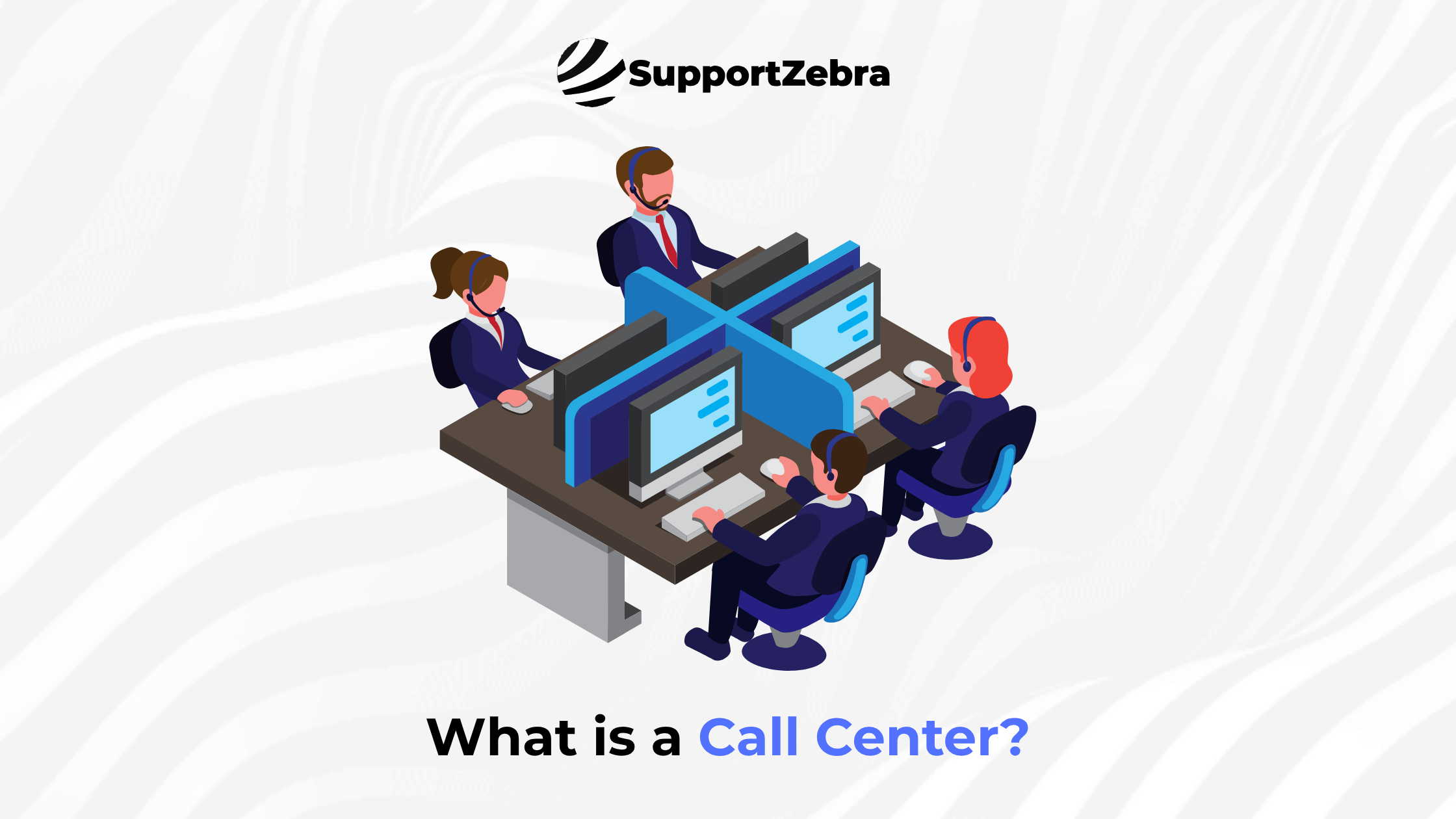Everything You Need to Know About Call Centers
Key Takeaways:
- Call centers enable businesses to stay responsive by efficiently handling customer inquiries, addressing problems, and fulfilling service needs.
- With trained agents and intelligent tools, call centers enhance customer satisfaction and alleviate internal team burdens.
- Different types of call centers serve different business goals, from support to sales to cost savings.
- Investing in a call center can reduce missed calls, increase loyalty, and support business growth.
When customers can’t reach you, they get frustrated. Long wait times, unanswered calls, and poor service can cause them to leave — fast. If this keeps happening, your business may lose trust, sales, and loyal customers. That’s where a call center can help. It gives your customers the support they need when they need it. With trained agents ready to assist, your business remains responsive, reliable, and easily accessible.
What Does a Call Center Do?
A call center handles phone calls for a business. The calls can be about many things, like:
- Questions about a product or service
- Help with using something
- Problems that need fixing
- Booking or cancelling appointments
- Placing orders or tracking shipments
Call centers are often the first point of contact between a business and its customers. The primary goal is to provide prompt and friendly assistance. If done well, it builds trust and encourages customers to return.
How Do Call Centers Work?
A call center operates with a team of agents who utilize phones and computers to communicate with customers. Some individuals use specialized software to help manage their calls. This system can:
- Direct calls to the right person
- Track waiting times
- Record past issues
- Keep notes on each customer
There are two types of calls they handle:
- Inbound calls – when customers call the business
- Outbound calls – when agents call customers for surveys, reminders, or follow-ups
A call center may run 24/7 or only during business hours, depending on the company’s needs.
What Are the Different Types of Call Centers?
Not all call centers are the same. Here are the main types:
- Inbound call centers – Handle incoming calls from customers who need help or information.
- Outbound call centers – Agents make calls for sales, surveys, or feedback.
- Blended call centers – Do both inbound and outbound calls.
- Virtual call centers – Agents work from various locations, often from their homes.
- Offshore call centers – Located in another country, often used to lower costs.
Each type has its own setup depending on the business’s goals and customers.
Who Works in a Call Center?

Call centers require a diverse team to operate effectively. Some key roles include:
- Call center agents – Communicate with customers and resolve their issues.
- Team leaders – Guide agents and ensure quality remains high.
- Quality analysts – Review call recordings and assist in improving service.
- Trainers – Teach new agents how to do their jobs.
- Supervisors or managers – Oversee the team and manage daily operations.
Good agents are patient, clear, and good at solving problems quickly.
What Skills Are Important in a Call Center Agent?
Call center agents need more than just phone skills. They also need to:
- Listen carefully to what customers are saying.
- Speak clearly and calmly, even during tough calls.
- Stay polite and professional at all times.
- Follow rules and scripts, if needed.
- Use computer systems to find answers fast.
- Stay patient when callers are upset or confused.
These skills enable agents to effectively solve problems, leaving the caller feeling heard and respected.
How Can a Call Center Help Your Business?
A good call center can make a big difference. It can:
- Improve customer satisfaction
- Save time by handling many calls quickly
- Let your team focus on other important tasks
- Help you keep more customers
- Boost your brand’s reputation
When customers feel cared for, they’re more likely to stay loyal and tell others about their good experience.
Is a Call Center the Same as Customer Service?
Not exactly. A call center is a part of customer service. Customer service includes many channels, like:
- Phone calls (through a call center)
- Emails
- Live chat
- Social media replies
- In-person help
A call center primarily focuses on phone support, but it often utilizes other support tools to provide a comprehensive customer service experience.
What Tools Do Call Centers Use?
Call centers utilize specialized tools to work more efficiently and effectively. These include:
- Automatic Call Distributors (ACDs) – send calls to the right agent.
- Interactive Voice Response (IVR) – lets callers pick options using their keypad.
- CRM software – stores customer details and a record of past issues.
- Call recording tools – used for training and quality checks.
- Headsets and softphones – help agents speak clearly and hands-free.
These tools help make every call smoother and more helpful for the customer.
What Are the Challenges Call Centers Face?
Even with the right tools, call centers can run into problems. Common challenges include:
- High call volumes during busy times
- Unhappy or angry customers
- Agents feeling tired or burned out
- Poor internet or phone connections (especially in remote teams)
- Keeping up with fast-changing technology
To solve these issues, call centers often focus on training, better tools, and wellness programmes for agents.
When Should a Business Establish or Utilize a Call Center?

A business should think about using a call center when:
- Customer calls are too many for the current team to handle.
- Service wait times are getting longer.
- Customers are leaving negative feedback.
- The business wants to offer 24/7 support.
- Sales teams need help with outreach or follow-ups.
Whether you build your own team or outsource to a third-party call center, it helps keep your business running smoothly and ensures your customers’ satisfaction.
Ready to Improve Customer Service? Start With a Call Center
A call center is more than just answering phones; it’s a vital part of how a business connects with its customers. From solving problems and improving satisfaction to driving loyalty and growth, a well-run call center helps businesses stay responsive and reliable. Whether you’re handling high call volumes or simply want to provide better service, having the right support team in place can make all the difference.
Let SupportZebra help you build a high-performing call center that prioritizes your customers’ needs. Our expert agents, proven systems, and 24/7 support are designed to keep your business connected and your customers happy. Reach out today to get started.

